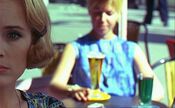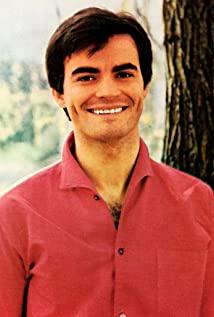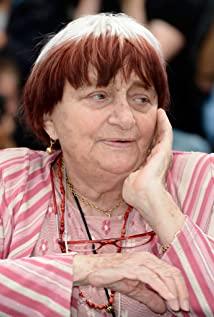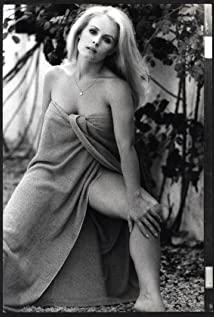Agnes Varda, the self-proclaimed grandmother of the French New Wave, has one of her controversial films, Le Bonheur.
The beginning of the film is a monotonous and rapid repetition of close-up shots and close-up shots of sunflowers that lasts more than 2 minutes. In the blurred background, Francois and his wife Therese, with their two toddlers, are walking slowly as a family of four. At the end of the film, in the light-yellow-brown-yellow autumn colors with rich layers, the position of wife Therese was replaced by her lover Emile, and the backs of the family of four gradually drifted away.
At the beginning of the film, happiness was already complete: in the summer forest, a family of four quietly and lazily enjoyed the comfort of the suburbs. Therefore, the audience's psychological expectation is either that this happiness is destroyed, and then returns to a happy ending, teaching people to understand the true meaning of happiness; All in all, such a kind of envy and yearning for happiness must be destroyed, so we have to wait patiently for the destruction to come.
At the end, I was stunned to understand why Varda told such a story in the 1960s: Francois, a carpenter, worked in his uncle's workshop. His wife, Therese, is a tailor, gentle and beautiful, and a great cook. They have two tender and lovely children. The family lives happily and happily in a picturesque town. One day, the husband went out, met the beautiful operator Emile at the post office and fell in love with her. A picnic - the movie keeps showing a family having a picnic in a picturesque forest, and the children always fall asleep in nature when the couple needs to linger, Francois confessed to Therese. So the following dialogue emerged:
- Can you still love me as you used to?
—Yes, I think so.
--how much do you love me?
-Love more than ever because you are so happy.
The children woke up from their nap and called their mother, and Francois found that Therese, who was lying beside him, was gone. Searching all the way, the last thing you see is Therese's drowned body.
After that, funerals, mourning. In the small pages, Therese's death—whether by suicide or accidental drowning—was as light as a feather. Soon, Emile takes Therese's place, cooking, ironing, watering the flowers, babysitting, and Francois in the same way, in a lively pacing of new family life. No one was left living or spiritually trapped by Therese's departure. At the end of the movie, only two words popped up in my mind: finished?
Yes, after about 80 minutes of the film, that's it. Renoir's impressionistic color style, Mozart's music, this film looks like a sensual treat. But behind the seemingly dreamy poetic life, there is indeed a bit of irony and cruelty. In the film, the role of women is nothing more than picking up children and taking care of the family's daily life. Here she is a role that can be replaced at any time, and it is insignificant. Francois said to Emile: "Therese is like a stubborn plant, you are like a free animal. I love nature." All his actions are just "follow my heart", which is natural and natural. So the husband's words and deeds in the film seem to be inappropriate for moral criticism.
"I don't want to tell people a conclusion, I just want to lead people to think deeper," Varda said. (Paraphrase) The film is open to no conclusion and presents a cold reality in the guise of happiness. The 1965 film is still shockingly bold today (shocking and audacious, brilliant and provocative). It doesn't make you warm and give you happiness like the title of the movie, it just makes you dazed. The beautiful scene like the Garden of Eden highlights the ruthless cruelty behind "happiness".
At the end of the movie, they return to the forest, it is autumn, and they take their children for an outing. Francois said to Emile, you accompany the children, I will go first alone. I thought the director would show the scene where Francois misses his deceased wife, but it didn't. Francois and Emile, wearing warm yellow sweaters, held the children's hands as they slowly melted into the autumn color.
View more about Le Bonheur reviews










